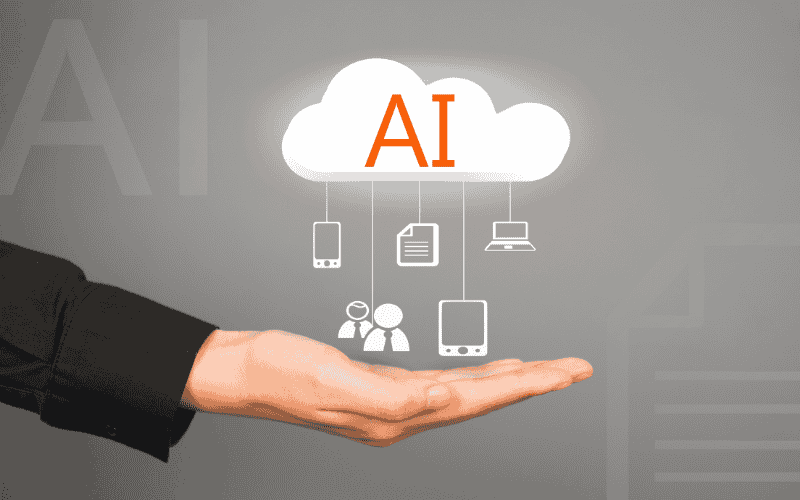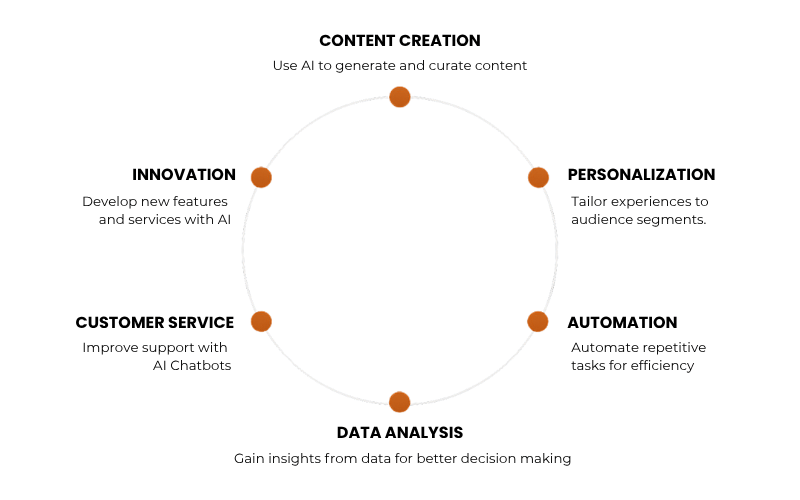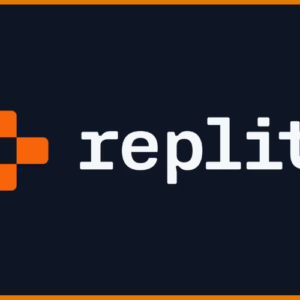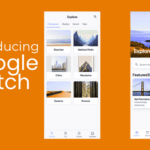Introduction
Artificial intelligence (AI) may sound like a futuristic concept limited to research labs or complicated machinery. However, it is now deeply integrated into our daily lives, just like the internet. From the minute you unlock your smartphone to the way you unwind with a movie at night, AI is working in the background, often unseen, to make things easier, more personalized, and more effective.
Recognizing these common AI uses is the first step for creators and entrepreneurs in understanding how to apply this powerful technology to own projects and ventures. It is not about sophisticated coding; it’s about identifying patterns and possibilities.
In our previous “Learn AI Series” article; Explore Amazing Techniques AI Models Use to Learn: A Beginner’s Guide we explored how AI models learn. Today, let’s look at some frequent examples of AI that you’re likely encountering on a daily basis and then consider how that translates into opportunities for creators and entrepreneurs like yourself.
AI You Use Every Single Day (Often Without Realizing It)

1. Unlocking Your Smartphone (Face ID & Voice Recognition)
- How it works: When you use Face ID, your phone’s AI analyzes hundreds of data points on your face to develop a personalized map. Every time you unlock it, the AI compares your current facial scan to the map. Similarly, voice assistants such as Siri, Alexa, and Google Assistant employ artificial intelligence to recognize your voice requests, filter out background noise, and learn your speech patterns over time.
- For Creators/Entrepreneurs: This highlights the effectiveness of biometric AI for security and customization. While you may not develop a Face ID solution, explore how AI-powered voice control or secure access could benefit your products or services. Consider apps that respond to voice commands for hands-free operation, such as Otter.ai, which utilizes AI to record and transcribe meetings, interviews, and brainstorming sessions in real time, allowing artists and business owners to focus on the conversation rather than taking notes. Another good example for creators and entrepreneurs is providing secure logins for unique content, such as a premium podcast platform that employs voice recognition to authenticate users and restricts access to authorized listeners.
2. Scrolling Through Social Media (Personalised Feeds & Content Moderation)
- How it works: Platforms like Instagram, TikTok, Facebook, and X (previously Twitter) use advanced AI algorithms to filter your feed. They track what you enjoy viewing, sharing, and commenting on and then display more of that content. AI also detects and filters spam, fake news, and hazardous content, and it even recommends new individuals to follow.
- For Creators/Entrepreneurs: This is a goldmine of insight! Understanding how these algorithms work (even at a high level) can inform your content strategy. How can you create content that AI is more likely to show to your target audience? Think about keywords, engagement triggers, and content formats. Also, AI tools can help you analyze social media trends and sentiment around your brand or niche. You can use a platform like Monica AI to analyze social media trends, using a tool called “Topic Trend Analyzer,” specifically created to help you study current trending topics and emerging ones across the web for the best insights.
3. Sending Emails and Messages (Spell Check, Grammar Tools, Spam Filters)
- How it works: When you type an email or message, AI-powered tools like Grammarly or Monica’s built-in spell checkers analyze your text in real-time, suggesting corrections for spelling, grammar, and even tone. On the receiving end, spam filters use AI to learn the characteristics of unwanted emails and keep your inbox clean.
- For Creators/Entrepreneurs: Clear communication is key. Leveraging AI writing assistants can save you time and ensure your marketing copy, blog posts, and customer communications are polished and professional. A good example of a tool that can help creators and entrepreneurs rewrite or reword your emails or marketing copy to fit the situation is Monica AI. You need to make sure you have the Google extension added to your Chrome browser for easy access and use. For entrepreneurs, AI can also help manage customer support emails by categorizing them or suggesting automated replies for common queries.
4. Searching the Web (Google & Other Search Engines)
- How it works: Search engines like Google use extremely complex AI algorithms (such as RankBrain and BERT) to determine the intent behind your search query, rather than just the keywords They analyze billions of web pages and rank them according to relevancy, authority, and user experience to provide you with the most accurate answers in milliseconds.
- For Creators/Entrepreneurs: Search Engine Optimization (SEO) is all about understanding how these AI algorithms work You can boost your exposure via search engines by generating high-quality, relevant content that answers your audience’s questions AI-powered SEO tools can also help you in identifying keywords, analyzing competition tactics, and optimizing your website Some of such tools used these days to for SEO include Googles Keyword Planner and Google Analytics and SEMrush.
5. Getting Directions (Navigation Apps like Google Maps & Waze)
- How it works: Navigation apps utilize AI to assess real-time traffic data (typically crowdsourced from other users), road conditions, speed limits, and historical traffic trends to determine the fastest or most efficient route. They can anticipate ETAs with amazing precision and reroute you if conditions change.
- For Creators/Entrepreneurs: If you are in the logistics business, delivery, or even organizing event venues, AI-powered navigation is essential. Consider creating location-based content or services; AI can assist you in understanding foot traffic patterns or identifying popular areas related to your specialty.
6. Shopping Online (Personalized Recommendations & Fraud Detection)
- How it works: When you shop on Amazon, Temu, or other e-commerce sites, AI is always working. It offers products based on your browsing behavior, previous purchases, and what similar consumers bought. Temu, for example, has really mastered the art of marketing with AI. AI also plays a vital role in fraud detection, examining transaction patterns to identify suspicious behaviour and safeguard both buyers and sellers.
- For Creators/Entrepreneurs: If you sell products or services online, AI-powered recommendation engines can significantly increase sales by showing clients products they are likely to be interested in. Understanding customer behaviour with AI analytics can also help you optimize your product listings, pricing, and marketing initiatives. AI can help producers sell digital items by personalizing the user experience on their platform.
7. Streaming Music and Movies (Netflix, Spotify, YouTube)
- How it works: These platforms employ AI to understand your preferences and recommend new songs, artists, movies or shows you might like. They track what you watch or listen to, how long you spend with it, what you skip, and what you add to your playlists or watchlists. YouTube even employs AI for automatic captioning and tracking where video views are coming from, amongst other things.
- For Creators/Entrepreneurs: If you create audio or video content, understanding how these recommendation algorithms work is crucial for discoverability. Use relevant tags, create compelling thumbnails/titles, and promote audience participation. AI tools can also help you analyze which parts of your content are most engaging or where viewers drop off. A good example of such a tool is Wistia. Wistia is a professional video hosting platform designed specifically for businesses and content creators who require greater control and deeper insights on their video content. With Wistia, you get access to detailed viewer tracking, including when people stop watching your content, when they rewatch segments or skip.
8. Smart Home Devices (Smart Thermostats, Voice Assistants)
- How it works: Smart thermostats understand your heating and cooling preferences and may automatically alter the temperature based on your schedule or even if you’re home. Voice assistants in smart speakers utilize artificial intelligence to recognize voices and control other connected devices.
- For Creators/Entrepreneurs: The smart home market is booming. If your creations or business ideas relate to home automation, lifestyle, or even productivity, understanding how AI integrates into these devices can spark new ideas For example, for creators, a YouTube channel that showcases content about smart homes and smart home devices can be a fine content niche to get into especially if you have some level of experience in the sector. You may also consider developing, wholesaling or retailing products that integrate with them.
9. Banking and Finance (Fraud Alerts, Chatbots, Robo-Advisors)
- How it works: Banks use AI to monitor transactions for fraudulent activity, sending you notifiations about unsual purchases. Many also use AI-powered chatbots for customer support and even offer robo-advisors that use algorithms to provide investing-related advice based on your financial goals and risk tolerance.
- For Creators/Entrepreneurs: While you may not establish a bank, knowing AI’s function in finance might be valuable. AI tools can assist with budgeting, spending tracking, and even forecasting for your organization. If you write about personal finance or investment, AI is an important issue to discuss.
How Creators and Entrepreneurs Can Leverage These Everyday AI Concepts
Seeing AI in these everyday contexts should demystify it Now, let’s think about how you can apply these ideas:
- Content Creation & Curation: Similar to how Netflix recommends shows, you can use AI tools to understand what content resonates with your audience and curate or create more of it . AI can help generate blog post ideas, draft social media updates, or even create basic video scripts even on automation.
- Personalization: Mimic the personalizing of social media feeds or e-commerce websites. Use AI to segment your audience and give personalized messaging, product recommendations, and content experiences.
- Automation of Repetitive Tasks: Consider how spam filters or spellcheckers automate operations. What repetitive tasks in your creative workflow or business operations could be automated with AI?. This could be everything from preparing social media postings to answering common consumer queries.
- Data Analysis & Insights: Search engines and social platforms utilize AI to evaluate massive volumes of data. Simpler AI-powered analytics solutions can help you understand your website traffic, customer behavior, or market trends, allowing you to make more educated decisions.
- Enhanced Customer Service: AI, like chatbots in banking, can be used to deliver faster, more efficient customer support by answering frequently asked queries or directing customers to the right resources, freeing up your time for other responsibilities.
- Product/Service Innovation: Could an AI feature make your product or service more valuable?. If you’re a photographer, could AI help with image tagging or culling? If you’re a writer, could AI assist with research or outlining? If you’re an entrepreneur, could AI optimize your supply chain or marketing spend? These are some questions to ask to be able to start understand the benefit of AI to you and your project or brand.
Leveraging AI for Content and Business Growth

AI is Your (Often Invisible) Partner
Artificial intelligence is no longer a distant concept; it’s a practical technology that’s already enhancing our daily lives and giving enormous potential for creators and entrepreneurs. By recognizing AI in the apps and services you use on a daily basis, you may begin to perceive it as a versatile partner who can assist you in creating better content, strengthening your enterprises, and connecting more effectively with your audience.
The key for creators and entrepreneurs is to remain curious, experiment with the available AI tools in our AI Tools Directory (many are more user-friendly than you’d expect!), and creatively consider how the principles behind these common examples can be tailored to fit your specific objectives.











